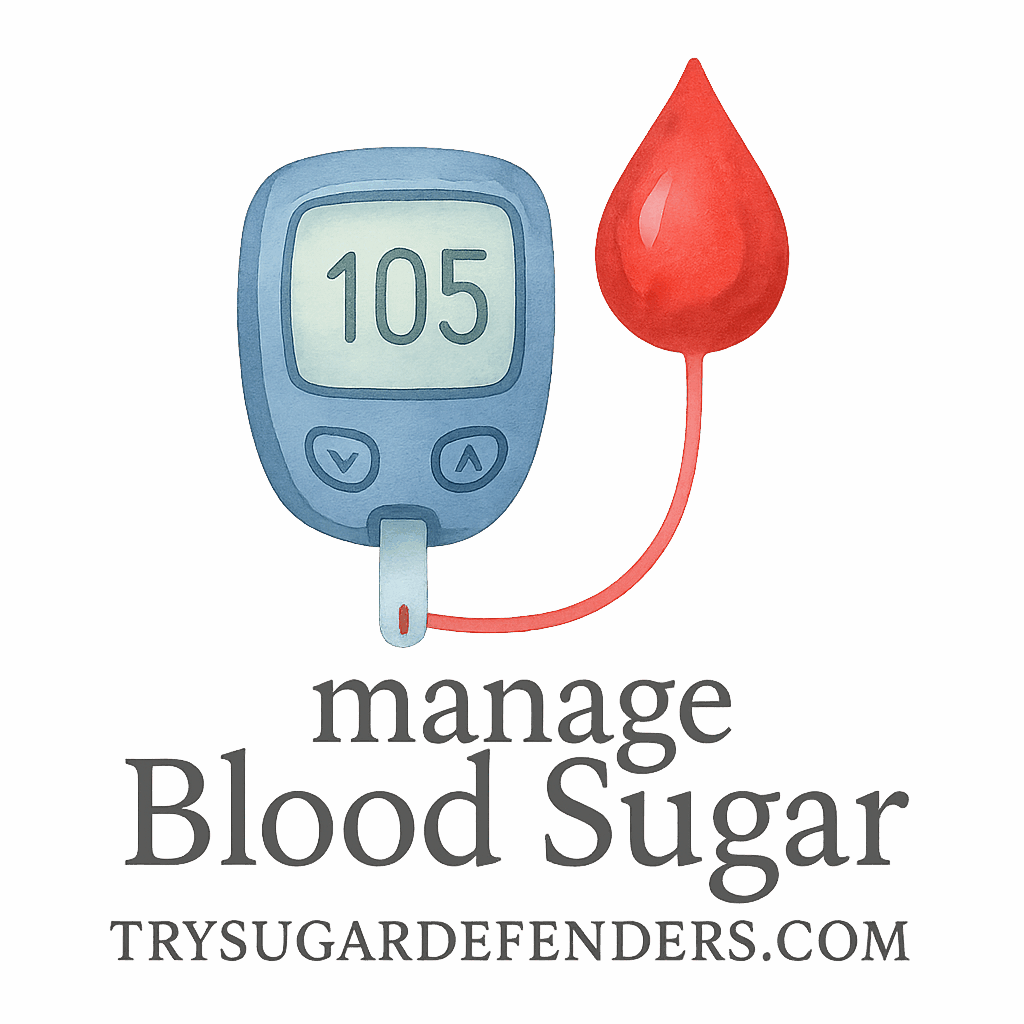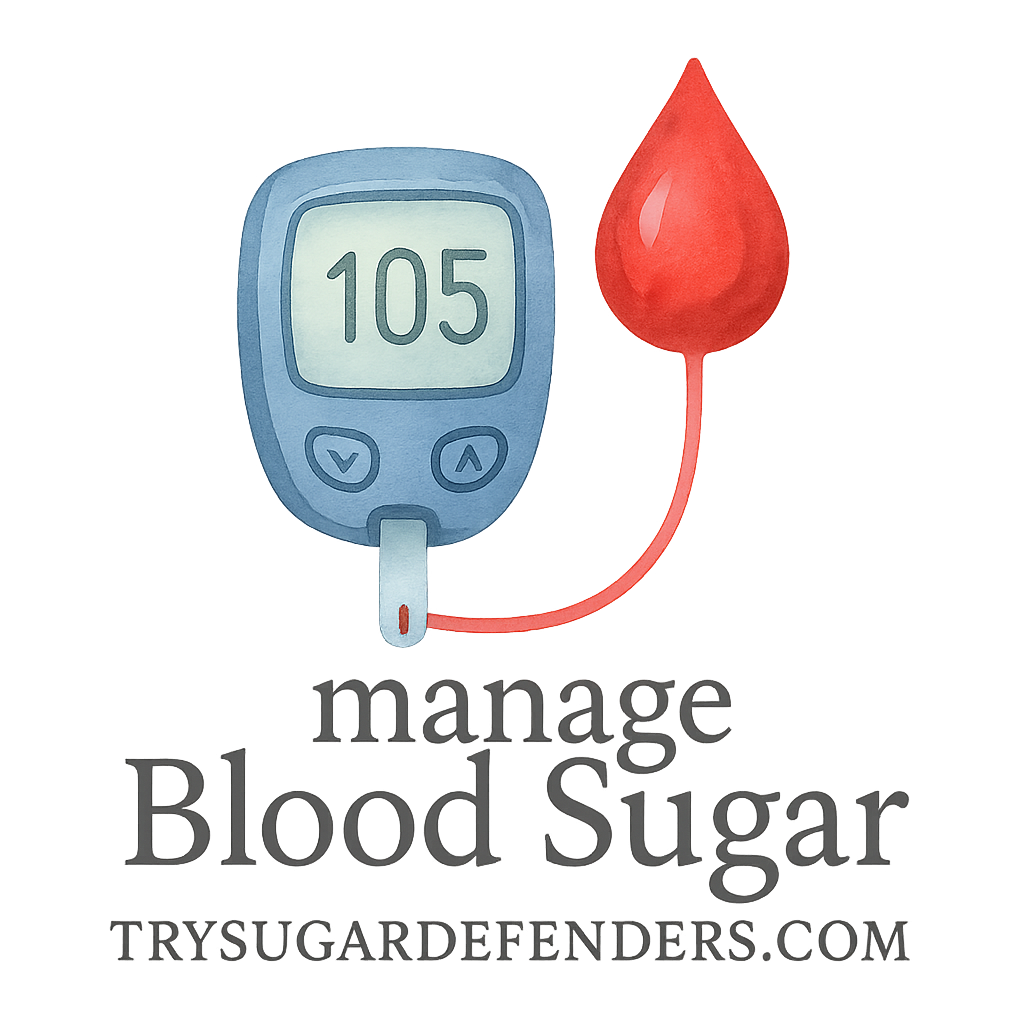Introduction
Have you ever felt drained for no reason, or maybe noticed weird changes in your appetite, mood, or vision? These might not just be random quirks—they could be your body’s way of telling you it’s time to check your blood sugar more often. With conditions like prediabetes and diabetes on the rise, knowing the signs you need to check blood sugar more often can make all the difference in early detection and control.
Let’s break down what to look for, why it matters, and how you can get ahead of it—all in simple, relatable language. No jargon. No scare tactics. Just real, actionable info.
Why Regular Blood Sugar Monitoring Matters
The Role of Blood Sugar in Health
Your body needs glucose (a form of sugar) for energy. But too much or too little can lead to health problems—some minor, some serious. Regular monitoring helps you stay in control and avoid nasty surprises.
Explore the importance of monitoring and tracking your blood sugar to better understand how daily habits affect your glucose levels.
Consequences of Ignoring Glucose Levels
Ignoring signs of unstable blood sugar can lead to:
- Chronic fatigue
- Insulin resistance
- Organ damage
- Type 2 diabetes
It’s not just about sugar—it’s about health, balance, and prevention.
Sign #1: Constant Fatigue
How Fatigue Links to Blood Sugar Fluctuations
Feel like you’re dragging yourself through the day, even after a full night’s sleep? If this happens regularly, high or low blood sugar may be the culprit. When glucose isn’t properly absorbed by your cells, your energy supply goes out of whack.
Check out our energy management strategies to fight fatigue the smart way.
Sign #2: Frequent Urination and Thirst
The Dehydration Cycle
One of the classic signs of high blood sugar is needing to pee constantly, followed by unquenchable thirst. Why? Excess sugar pulls water from your tissues, leaving you dry and thirsty. It’s a loop you don’t want to be stuck in.
Stay ahead with these monitoring tips and avoid unnecessary dehydration spirals.
Sign #3: Blurred Vision
Temporary vs. Long-term Eye Problems
Sudden blurry vision isn’t always a sign you need new glasses—it could be your blood sugar wreaking havoc. Too much glucose can affect your eye’s lenses, making it harder to focus.
Learn more in our visual health guide to catch the issue early.

Sign #4: Slow Healing Wounds
Blood Sugar’s Effect on Circulation
Cut yourself shaving and notice it’s still healing days later? That could be due to high blood sugar damaging your blood vessels and reducing blood flow—especially in the legs and feet.
Read about methods to improve circulation and healing naturally and medically.
Sign #5: Increased Hunger Even After Eating
Insulin Resistance at Play
Feeling ravenous shortly after a full meal could mean your cells aren’t getting the sugar they need—even if there’s plenty in your bloodstream. That’s a red flag for insulin resistance.
Consider tracking this symptom using tech from our device comparison page.
Sign #6: Sudden Weight Fluctuations
Unintentional Weight Gain or Loss
Sudden weight gain or unexplained loss can both be signs of blood sugar imbalance. If your body can’t use glucose effectively, it may start burning muscle or storing fat irrationally.
Use these diet planning tools to support sustainable weight goals.
Sign #7: Tingling or Numbness in Extremities
Early Nerve Damage Indicators
That tingly feeling in your hands or feet could be an early sign of nerve damage—a common consequence of prolonged high blood sugar.
Check out our guide to nerve protection strategies before it gets worse.
Sign #8: Frequent Infections
Blood Sugar Weakens Immune Function
High glucose levels suppress immune responses, making you a frequent target for yeast infections, urinary tract infections, and even gum disease.
Learn how to build your defenses with better diet and lifestyle habits.
Sign #9: Mood Swings and Brain Fog
The Mind-Glucose Connection
If you’re constantly moody, foggy-headed, or anxious, it might not just be stress. Glucose fuels your brain, and an imbalance can mess with your mood, memory, and focus.
Use tools from our mental strategies page to get back in control.
What To Do If You Notice These Signs
Get a Glucometer or Continuous Glucose Monitor
Devices like CGMs can give you 24/7 insights into how your body handles glucose. Learn more about modern blood sugar monitors that fit into your lifestyle.
Track Patterns with Smart Technology
Use apps and wearables to monitor trends, not just numbers. Consistent tracking beats guesswork every time.
Explore our technology hub for the best tools on the market.
Long-Term Solutions for Blood Sugar Control
Balanced Diet and Nutrition Choices
What you eat plays a HUGE role. Focus on whole grains, lean proteins, healthy fats, and fiber.
Get our full nutrition breakdown here and explore the Mediterranean diet benefits.
Exercise and Lifestyle Adjustments
Movement helps your body use insulin more effectively. It doesn’t have to be hardcore—walking, yoga, and swimming all count.
Visit our exercise & lifestyle page and tap into the power of small, consistent changes.
Cognitive Behavioral Therapy and Mindset Shifts
Managing blood sugar isn’t just physical—it’s mental too. CBT can help break habits and reinforce healthy behavior.
Start with our mental strategies guide for practical tools.
Medical Supplements and Doctor Consultation
Sometimes your body needs a little boost. Supplements like magnesium or alpha-lipoic acid can help. But always talk to your doctor first.
Check our section on medical supplements for evidence-backed options.
When to Seek Professional Help
If you’re experiencing multiple signs, don’t just Google and guess—get tested. A quick blood panel can confirm what’s going on. Bring your data and symptoms for a focused consultation.
Explore how and when to talk to your doctor and get answers to your questions.
Conclusion
Blood sugar issues don’t just show up on lab tests—they show up in your daily life. Whether it’s fatigue, fogginess, or just not feeling “right,” your body might be giving you hints. Recognizing the signs you need to check blood sugar more often is your first step to getting back on track.
With the right tools, support, and information (like what you’ll find on Try Sugar Defenders), you can reclaim your energy, health, and clarity—one blood sugar reading at a time.
FAQs
1. How often should I check my blood sugar if I’m not diabetic?
If you’re showing symptoms or have risk factors, check once every few months—or more frequently if advised by a doctor.
2. Can stress cause high blood sugar?
Yes! Stress hormones like cortisol can increase glucose levels even if your diet is clean.
3. Are home glucose monitors accurate?
Most modern devices are reliable. Make sure you’re using a tested and reviewed monitor.
4. Is fasting blood sugar enough to detect problems?
Not always. Post-meal and random tests provide deeper insights into your glucose behavior.
5. Can blood sugar affect sleep?
Absolutely. Blood sugar spikes and drops can disrupt your sleep cycle.
6. What foods help stabilize blood sugar?
Try leafy greens, legumes, nuts, lean protein, and Mediterranean-style meals.
7. When should I consult a doctor about blood sugar?
If you’ve noticed multiple signs discussed above, it’s time to seek a professional consultation.


